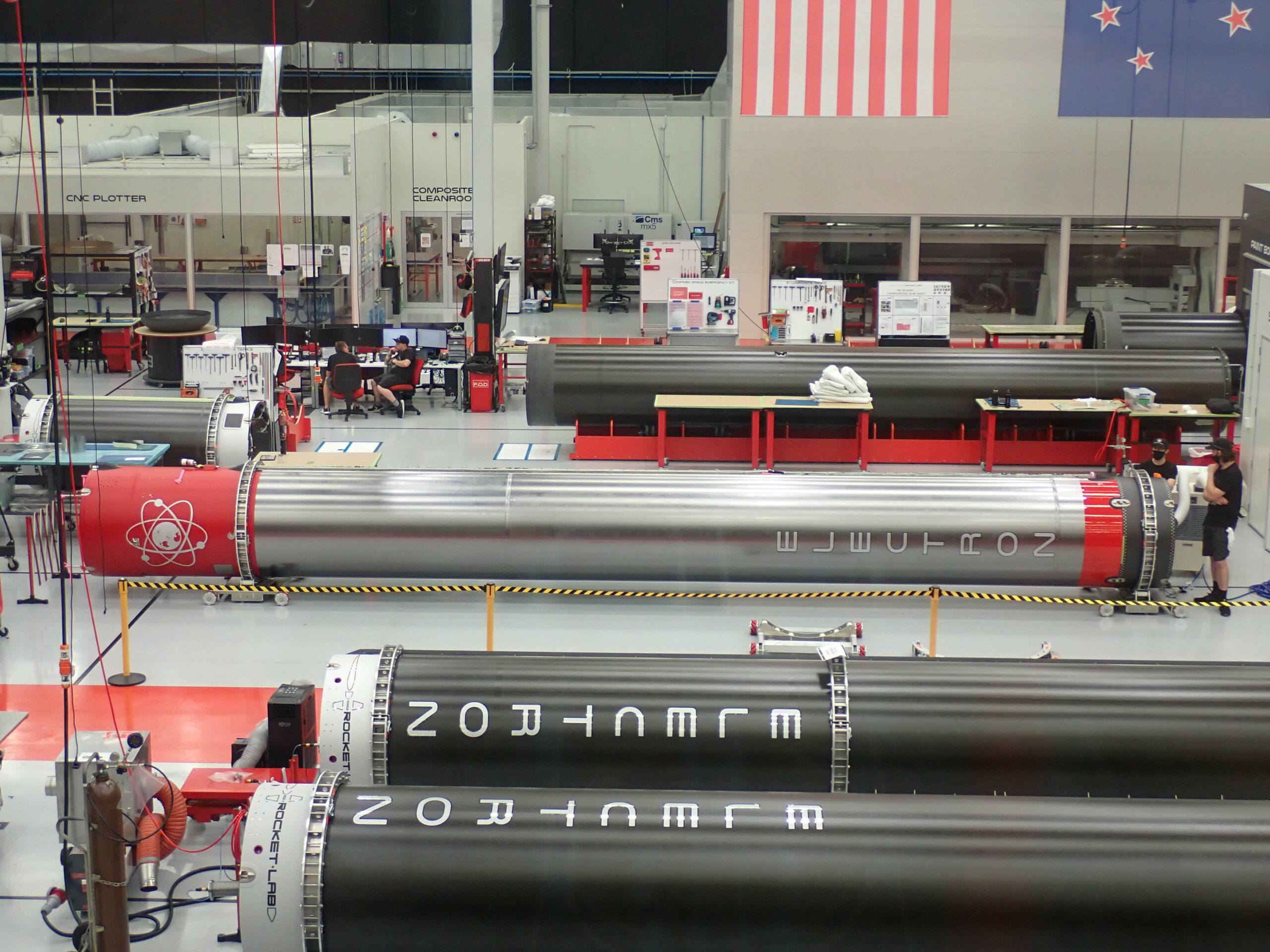A look at the company's production floor shows a series of Electron boosters, with the typical black carbon fiber rockets in the foreground and a m
A look at the company’s production floor shows a series of Electron boosters, with the typical black carbon fiber rockets in the foreground and a metallic-looking reusable booster in the center.
Rocket Lab
Rocket Lab CEO Peter Beck was once confident that his company would never reuse its rockets like Elon Musk’s SpaceX — to the point that Beck promised to eat his hat.
A few swallowed threads of blended hat later, Beck has dramatically changed his tune. Rocket Lab is nearly finished with a development program that uses helicopters to catch Electron boosters after launches, and the company is designing its Neutron rocket to be reusable when it debuts in 2024.
“I think anybody who’s not developing a reusable launch vehicle at this point in time is developing a dead-end product because it’s just so obvious that this is a fundamental approach that has to be baked in from day one,” Beck told reporters during a press conference on Tuesday.
Beck’s declaration aligns in sentiment with Musk, who told CNBC in response to a Rocket Lab recovery video that “full & rapid reusability is the holy grail of orbital rocketry.”
Traditionally, the rockets that launch satellites and spacecraft are expendable – meaning the booster, which is the largest and most expensive part of the rocket that gets it off the ground, is discarded after a launch. SpaceX pioneered reusing orbital-class rocket boosters, with Musk’s company regularly landing its Falcon boosters after launches and reusing them up to 10 times each.
A composite image showing a Falcon 9 rocket booster lifting off and a few minutes later landing back near the launchpad.
SpaceX
Helicopter rocket catch next year
Rocket Lab launched an Electron mission carrying satellites for BlackSky last week and, for the third time, successfully recovered the booster from the water after returning it through the atmosphere.
“The next recovery flight that we will make will be one where we will go and actually catch it,” Beck said on Tuesday.
Timing of that next recovery attempt depends on “helicopter readiness,” Beck said, as Rocket Lab has “a significantly larger helicopter in work” and it “needs some modifications” completed to be ready to catch Electron.
“We certainly hope to have that flight within the first half of next year, or as soon as practically possible,” Beck said.
A close look at the company’s reusable Electron rocket booster.
Rocket Lab
Rocket Lab is using a new thermal protection system on its Electron booster to strengthen it for recoveries, a type of graphite that makes the carbon fiber rocket “almost look metallic,” Beck said.
Once Rocket Lab completes the recovery test program, Beck expects that “around 50% of Electron flights will be reusable versus expendable.” Rocket Lab’s main goal of reusing rockets remains improving production output.
Reflecting on 2021, in which his company has completed five launches so far, Beck said the year has been “horrible” and “really, really tough.” He cited the New Zealand Covid lockdown procedures as the main pain point for the company, saying it has slowed the company’s production and schedule.
But Rocket Lab is preparing to bounce back next year.
“We have a bunch of launch vehicles sitting on the floor, and we’re going to have to have a very, very busy 2022,” Beck said.
www.cnbc.com
